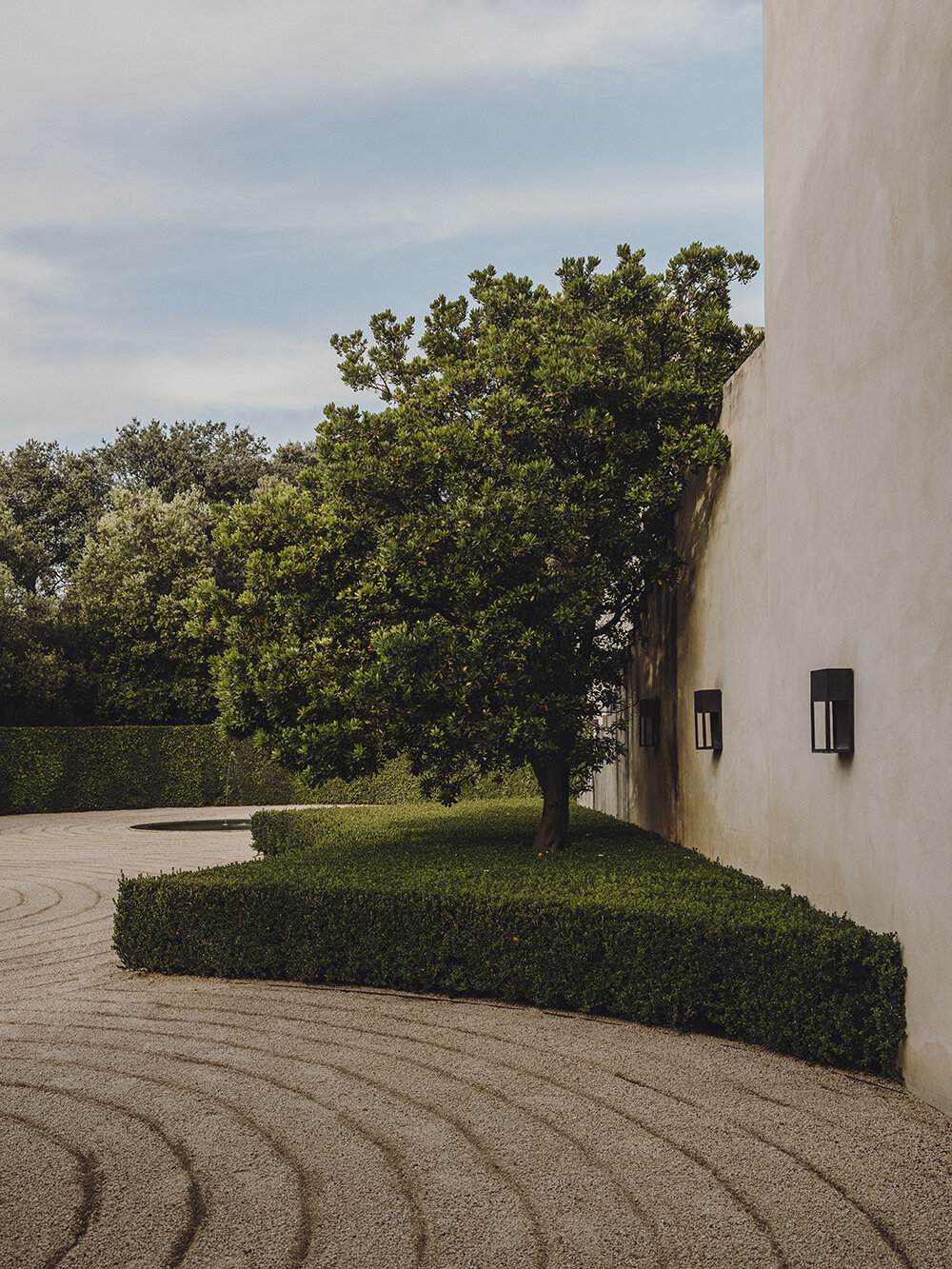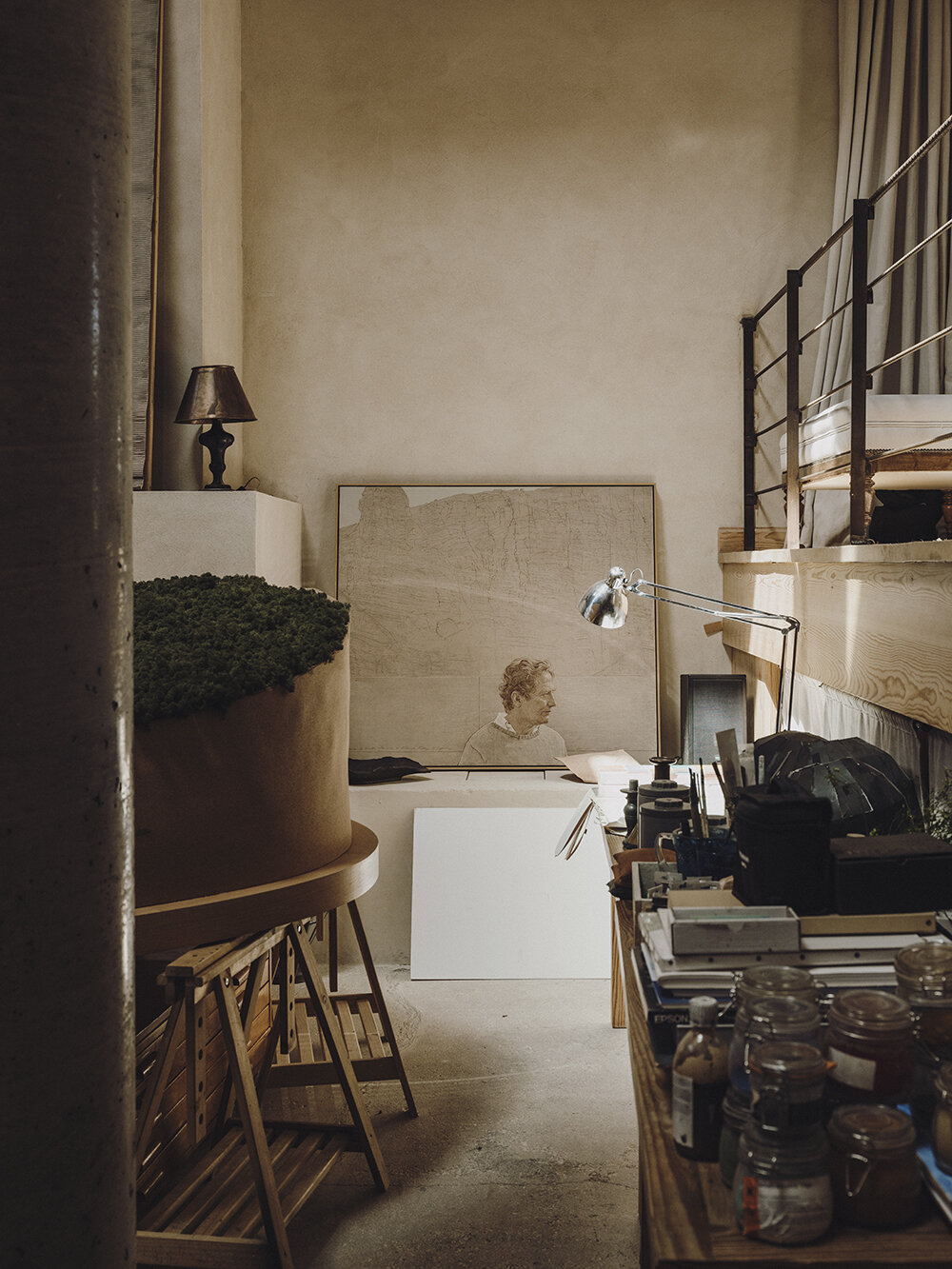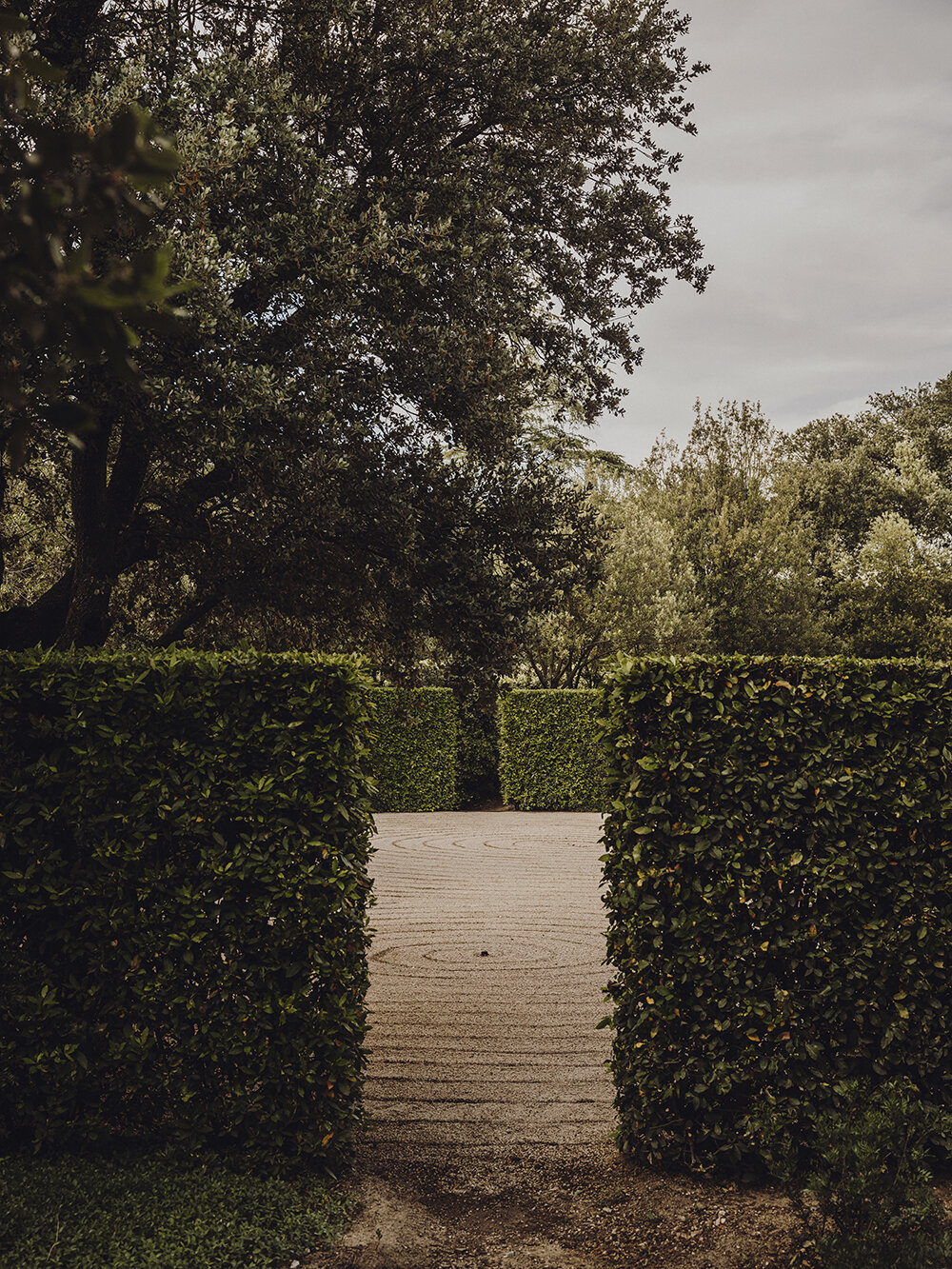THE PEBBLE AND THE ROUND POUND

-
Interview to Fernando Caruncho in his studio, Madrid.
-
Openhouse magazine
Issue Nº12 -
Photographed by Salva López
salvalopez.comCaruncho Garden & Architecture
web.fernandocaruncho.com -
FERNANDO CARUNCHO
As I walk, I heed the spherical pattern traced on the ground, my mind is engrossed in circular trains of thought... I feel as if I am floating, walking on the ripples caused by an imaginary pebble as it drops into the pond... right in the middle of the circumference.
“All places possess some kind of beauty. There’s no-where in the world without beauty, because their excellence resides in light.”
The person who launched the pebble is Fernando Caruncho, interpreter of a language conveyed through light and nature, expressed in the form of a garden. However, this is not the only way that Fernando imparts its message. Today, on our visit to his studio, there is a magnetic rhythm to Fernando’s conversation that guides us in discovering what underlies that notion commonly known as a landscape or–what is tantamount to the same– what underlies what we call life.
In this little corner of the world on the outskirts of Madrid, there are no shortcuts to the course of events. Time follows its natural order and the passage of time is awarded an almost religious respect. Gardening is based on this same respect. Fernando’s studio has specialized in sparking off dialogue between landscape gardening (in the sense of creating gardens conceived to accompany and enhance architecture) and this last discipline for over forty years.
Lulled by the unusual tempo of Caruncho’s words, we converse with him about the divine, the human and a combination of both. For this creator, one is meaningless without the other. His background in philosophy–whose studies he completed before turning to the world of gardening–exerts a strong influence on his vision of the world. His gentle tones and unhurried pace lend a credibility to words that have a transformational capacity. «Gardens are a question of faith, where desire plays a key role. I believe in love as a universal force. It’s that unfamiliar force that gives us our balance in this chaotic universe.»
Fernando spent part of his childhood in Ronda, Malaga, where his parents had an apartment. «At the end of the tree- lined avenue, La Alameda del Tajo, I would cling onto the railings of a vantage point hovering above a 200-metre drop and gaze at the landscape that stretched out before me», he recalls. «Maybe that was the origin of my passion. Ronda is a place where one feels closely in tune with the landscape.»
“Gardens are like all living things. They are created and they grow, mature and die in a cyclical process. I feel as if I’ve died on many occasions. By dying, I give rise to a new Fernando, whose existence would not be possible without the preceding one.”
Like the conductor of an orchestra, Fernando orders his words organically and guides us along the pathways of a philosophy that is not new but which is so rare that it seems contemporary: «The speed of today’s life trivializes events. We are always waiting for the next thing to occur and so instead of being enriched by experiences, they burn us up.» He explains that a garden’s creation, growth and development form part of that process of enrichment. «A garden takes time to reach its peak and patience is needed until that moment. Gardens are not for people who are in a hurry, but for those who understand that life is a marvellous process, filled with mystery closely tied in with nature.»
One key aspect of gardens is their sense of movement. «It’s marvellous to see how the features that generate the most movement are actually the totally static ones driven into the ground.» This interplay with reflections and surface absorbed light waves originated in the Mediterranean: «It’s an ancient method. Controlling light, empty spaces and volumes. If you can achieve that with architecture, the space is transformed into a concept. This is the case with all Mediterranean architecture. It’s totally conceptual.»
The studio we are in is a good example of this method. It is simple and welcoming, and yet brimming with originality and stylish sobriety, epitomized, above all, by the ever-present light. «A few days ago, my friend Axel remarked that what he likes most about this place is its sense of emptiness. I think he’s right. If there’s something special about it–because basically it’s just a cube with a hole on top– it’s that feeling of emptiness.»
When he embarks on a new project, the starting point is clear: «All places possess some kind of beauty. There’s no-where in the world without beauty, because their excellence resides in light.» Fernando’s work begins when the spirit of that light is expressed. Then he listens to the place and tries to reproduce the message that it conveys to him. «We don’t plan a place. We let it shape our minds through a process of observation where there’s no room for bias.» He sums it all up by saying that in architecture and gardens, «We must summon the spirit of the place.»
The words of this great thinker are guided by the spirit of generosity and he expresses his ideas with keen sincerity. «Gardens are like all living things. They are created and they grow, mature and die in a cyclical process. I feel as if I’ve died on many occasions. By dying, I give rise to a new Fernando, whose existence would not be possible without the preceding one, although this one is different from before.» When we bid farewell to each other at the end of the day, we are no longer the same people because Fernando has taught us a major lesson in life.



